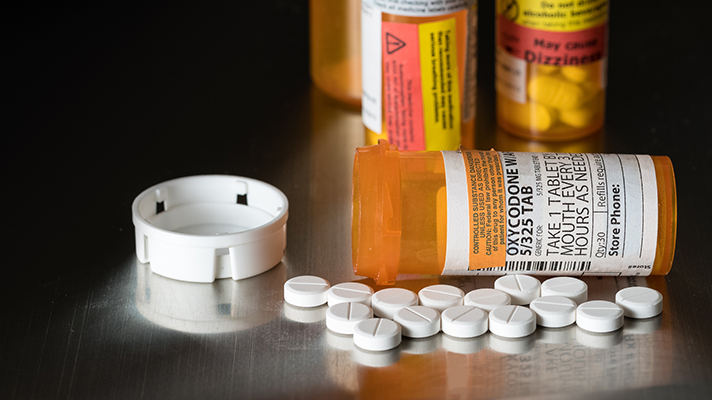Electronic health records can play a vital role in safe opioid tapering for patients who have relied on the medication to address chronic pain, says a new HIMSS Electronic Health Record Association white paper compiled by Dan Seltzer and the EHRA Opioid Crisis Task Force.
For patients with chronic pain, opioid use is clinically indicated, and can provide effective relief.
Governmental and professional guidelines recommend gradual opioid-dose reduction for patients taking more than 90 morphine milligram equivalents daily when opioid side effects become unmanageable, when the opioid use is no longer effective or when providers are concerned about substance-use disorder or overdose.
“EHRs are the natural platform for physicians to initiate, track and maintain opioid tapering plans,” say the paper’s authors.
WHY IT MATTERS
Rapid opioid withdrawal can present severe, sometimes life-threatening symptoms in patients. Instead, providers should reduce dosage in patients who need tapering 5% to 20% every four weeks.
Still, tapering presents a challenge for many providers. Since every patient has different needs, the EHRA paper authors note that a highly customizable plan for tapering is often required.
“The EHR should provide flexible tools that enable providers to individualize treatment plans and adapt treatment over time based upon the patient response,” the authors note.
The first step, the EHRA says, is to ensure that facilities have implemented opioid stewardship programs that make use of EHRs.
Then, providers can use electronic tools such as morphine milligram equivalent calculations, automatically generated tapering schedules, clinical-decision support promoting non-opioid therapy alternatives, specialized physician notes, evidence-based order sets tracking side effects and screening assessments for withdrawal symptoms, in order to safely and effectively taper a patient’s opioid use.
The EHRA paper also proposes several EHR advancements that could further improve treatment, such as predictive models to highlight potential tapering candidates, detailed MME graphic and tracking within the chart, rate controls to generate plans based on patient conditions, early warning systems for withdrawal, patient-facing views of the taper calendar and decision support on dose adjustments.
“These solutions should be flexible enough to accommodate provider judgement while also straightforward and inclusive of clinical guidelines,” write the paper authors.
THE LARGER TREND
The opioid crisis in the United States has spotlighted the problems with over-prescription and punitive responses to substance-use disorder. Providers who treat patients with chronic pain also face challenges adhering to federal guidelines and state law around opioid prescriptions.
EHRs and other technologies can act as crucial tools for implementing clinically indicated opioid treatment. In previously published materials, the EHRA has noted that providers can incorporate pain and functional goals into care plans, chart displays and other reports through EHRs.
Clinicians can also use “EHR analytics to monitor and improve adherence to opioid treatment agreements for chronic pain populations, as well as [to monitor] compliance with regulatory requirements,” the EHRA advised in a CDC Opioid Guideline in 2018.
Other hospital executives have relied on automated patient alerts, telehealth and continuous electronic monitoring of patient-controlled analgesia to reduce opioid misuse and addiction.










































